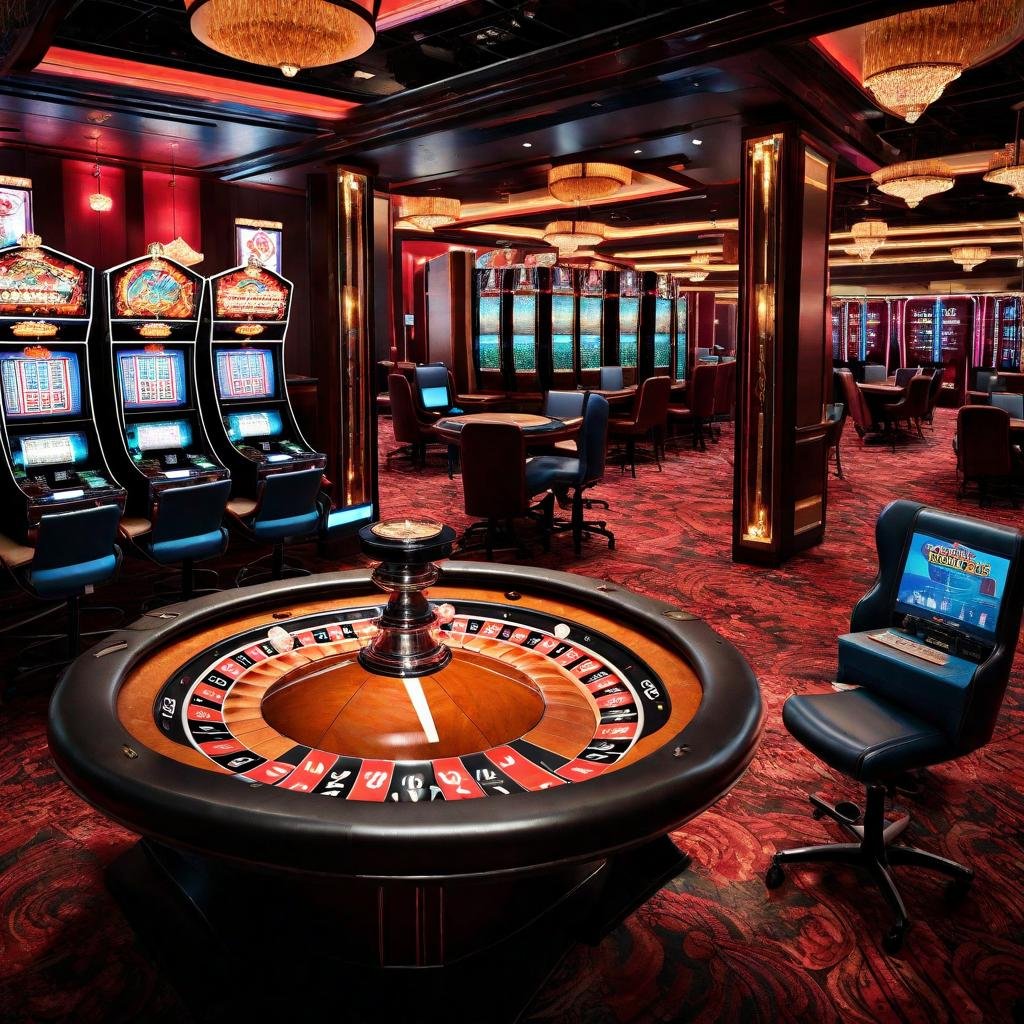
Gambling games have long captured the fascination of humans around the planet, becoming an important part of both fun and culture. From the shimmering lights of Nevada to the captivating experience of online gaming, these games evoke enthusiasm, uncertainty, and sometimes even a sense of remembrance. They are not just simply hobbies; they have woven themselves into the texture of human experience, influencing everything from cinema and melodies to style and books.
The appeal of casino games goes beyond the gambling aspect, tapping into broader themes of luck, risk, and psychology. As players convene around a gaming table or spin the roulette, they engage in an ancient ritual that resonates with our collective desire for adventure and uncertainty. This captivation has led to the growth of numerous references in cinema, tracks, and electronic games, showcasing how strongly entrenched these activities are in popular culture. Whether it is the pressure of a traditional caper or the lively nightlife portrayed in music videos, casino games have carved out a substantial role that reflects our relationship with reward.
Cultural Importance of Casino Activities
Gambling activities have played a crucial role in cultural contexts throughout the ages. Originating from ancient civilizations, games of chance were often connected to ceremonies or gatherings. For example, early forms of gambling can be traced back to ancient Chinese and the Romans, where dice games and wagering on results were popular pastimes. These activities not only functioned as entertainment but also as methods of connecting people, facilitating relationships among people within communities.
As societies evolved, so did the sophistication and organization of casino games. The creation of formal casinos in the 17th century, particularly in Italy, marked a major shift in how games were perceived and organized. With designated spaces for gambling, the casino became a social hub where patrons from various backgrounds convened. This evolution contributed to the validation of gambling, transforming it from a mere pastime into an established industry that influenced economy and policy. Ga179
The effect of casino games on mainstream culture cannot be overlooked. As they were popularized in books and movies, games such as Texas Hold’em and blackjack became icons of chance, luck, and strategy. Iconic figures and stories have developed around these games, reflecting societal views towards luck, prosperity, and vice. This fascination with casino activities has permeated various forms of entertainment, cementing their place in the public imagination and connecting them to wider cultural stories throughout history.
Portrayal of Gambling Games in Media
Gambling games have long been a popular theme in different types of entertainment, reflecting both the thrill and intricacies of gambling culture. Films such as Ocean’s 11 and Casino Royale portray individuals who navigate high-stakes environments, showcasing not only the appeal of the casino atmosphere but also the methods and choices that come with playing popular games like poker and blackjack. These films often dramatize the thrill of winning and the potential consequences of losing, encapsulating the dangers involved in gambling.
Television shows have also explored the realm of gambling activities, often integrating them into the narrative as a backdrop for character development and conflict. Series like Las Vegas depict the experiences of casino workers and patrons, highlighting the dynamic, often disorderly energy of the gaming floor. Reality shows featuring intense betting contests further emphasize the fascination of gambling activities, drawing viewers into the excitement and tactics involved in each session. Through these portrayals, media not only entertains but also prompts conversations about fortune, skill, and the nature of chance.
Gaming have increasingly included gambling activities into their development, allowing players to simulate the experience of betting without financial risk. Games within the domain of online gaming often include online slot machines, poker, and other popular casino games, creating an interactive experience that mirrors real-life gameplay. These digital representations make casino games accessible to a global audience, appealing to both gamblers and those who enjoy the rush of simulation. As a outcome, the portrayal of casino games in media continues to shape public perception and cultural significance, highlighting their role in society and the cultural landscape.
Effect of Gambling Activities on Society
Gambling activities have a meaningful effect on communities, affecting multiple aspects of culture and interpersonal behavior. They often serve as a venue for community engagement, where people come together to experience a common activity. Casino trips with friends or trips to casinos become group events that foster connections and create memories. This collective aspect enhances the fun value of casino games, making them a favored choice for celebrations and recreational pursuits.
Additionally, casino games have been portrayed in countless films, television shows, and written works, shaping views and attitudes towards gaming and gaming. Icons like James Bond competing in baccarat or the intense poker scenes in films have embedded these games in the collective imagination. This depiction often glamorizes the lifestyle associated with gambling, drawing in new players and influencing trends in both fashion and behavior. These representations can spark curiosity and lead to a more profound exploration of the nuances of gaming.
However, there are also negative implications associated with the widespread appeal of gambling activities. The temptation of quick monetary gain can lead to gambling addiction and economic troubles for some people. Society must contend with these issues, promoting responsible gambling and education of the risks involved. Finding a balance between the fun aspect of casino games with the potential for harm is crucial to ensure that they continue to be a positive aspect of our societal fabric.